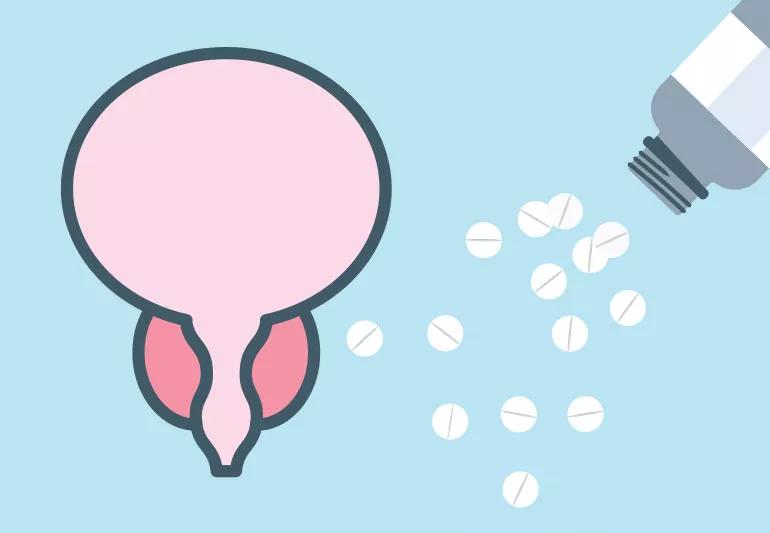Research raises doubts about the effectiveness of supplements for your prostate

Image content: This image is available to view online.
View image online (https://assets.clevelandclinic.org/transform/020d5243-b23f-4549-9a74-8b2fddd33d95/prostate-health-supplements-1324001308-770x533-1_jpg)
A diagram of the Prostate and supplemental pills on a blue background.
When it comes to prostate health, it seems that many look for solutions in supplement bottles.
Advertisement
Cleveland Clinic is a non-profit academic medical center. Advertising on our site helps support our mission. We do not endorse non-Cleveland Clinic products or services. Policy
Research shows that those with an elevated risk for prostate cancer are more likely to take vitamins and supplements — particularly if those pills boast of offering a boost for prostate health.
Here’s the question, though: Do those supplements really make a difference for prostate cancer or other prostate issues? Let’s look at the claims with urologist Brad Gill, MD, MS.
If you’re looking for clear-cut proof that supplements can nudge you toward a clean bill of health for your prostate … well, it’s not exactly there. In fact, in some instances taking prostate health supplements may even lead to prostate problems.
Bottom line? Don’t expect to find a magic pill for prostate health. “If a proven supplement existed, we’d all be taking it,” says Dr. Gill. “But the evidence is fairly weak or lacking when it comes to supplements and prostate health.”
There’s no shortage of supplement suggestions for prostate health if you go to Google and start searching. Here are the most common ones that come up — and what you should know about each:
Saw palmetto is probably the most common supplement used to promote prostate health. (Fast fact: Saw palmetto supplements are made from the fruit of a shrubby palm tree that grows in the southeastern United States.)
Advertisement
Some studies indicate that saw palmetto has the potential for limiting prostate gland enlargement and easing urine flow. Researchers also found the supplement to be safe to use, with no real adverse effects.
The benefits are likely linked to the anti-inflammatory effects of saw palmetto berries and extracts.
Before you stock up, though, other research is not quite as bullish on saw palmetto as a quick-fix for the prostate. “There have been some positive results, but there are limitations on the data and the conclusions we can draw from them,” notes Dr. Gill.
Taking vitamin E may actually increase your risk of prostate cancer, according to a study tracking more than 35,000 healthy men.
“The observed 17% increase in prostate cancer incidence demonstrates the potential for seemingly innocuous yet biologically active substances such as vitamins to cause harm,” researchers wrote. (The added risk was connected to taking 400 IU of vitamin E per day.)
The same study that reviewed the effects of vitamin E on prostate health also looked at selenium and found no real benefit. Another study warned against taking selenium if diagnosed with prostate cancer after determining it may increase your risk of death.
However, other research has found potential benefits in taking selenium for protection against prostate cancer. Together, these studies show the lack of clear evidence supporting certain supplements for prostate health.
Could zinc help your prostate? Some studies say it might while others express doubt. (Seeing a pattern here? Like we said at the start, there really isn’t much clear-cut proof for any supplement being a definite solution to problems.)
The “maybe” explanation for zinc works for many supplements touted as being good for prostate health. An inconclusive label also fits for:
When it comes to supplements, know this: The U.S. Food and Drug Administration (FDA) doesn’t regulate supplements as they do for prescription medication.
So, if you take an over-the-counter supplement, you’re not always entirely sure what’s in it, warns Dr. Gill. It may have items listed on the back, but the potency or amount isn’t regulated like they are with prescription medications.
“That leaves an unknown as to what effect a supplement may have,” says Dr. Gill. “Despite labels reading similarly, these important details can vary from batch to batch within a manufacturer and definitely between one manufacturer and another.”
Advertisement
Dr. Gill recommends talking with your doctor before starting a supplement. (It should be noted that surveys show that less than half of those who have prostate cancer discuss their use of supplements with a medical professional.)
“It’s very important to talk to your doctor before starting a supplement to make sure it’s safe,” reiterates Dr. Gill. “It’s very rare that vitamins and supplements used at recommended doses can be dangerous, but using too much of certain compounds or getting too high of a dose can lead to serious medical problems. It’s best to be careful.”
To hear more from Dr. Gill on this topic, listen to the Health Essentials Podcast episode, “Talking About Prostate Health.” New episodes of the Health Essentials Podcast are available every Wednesday.
Advertisement

Sign up for our Health Essentials emails for expert guidance on nutrition, fitness, sleep, skin care and more.
Learn more about our editorial process.
Advertisement
Research shows that eating more plant-based food may reduce your risk of prostate cancer
Bleeding is a risk and warrants taking care, but the reward of this lifesaving medication is great
Severe and debilitating headaches can affect the quality of your child’s life
With repeat injections over time, you may be able to slow the development of new wrinkles
Although it can be alarming, it’s normal to experience blood clots during menstruation
Type 2 diabetes isn’t inevitable with these dietary changes
Applying a hot or cold compress can help with pain
Pump up your iron intake with foods like tuna, tofu and turkey